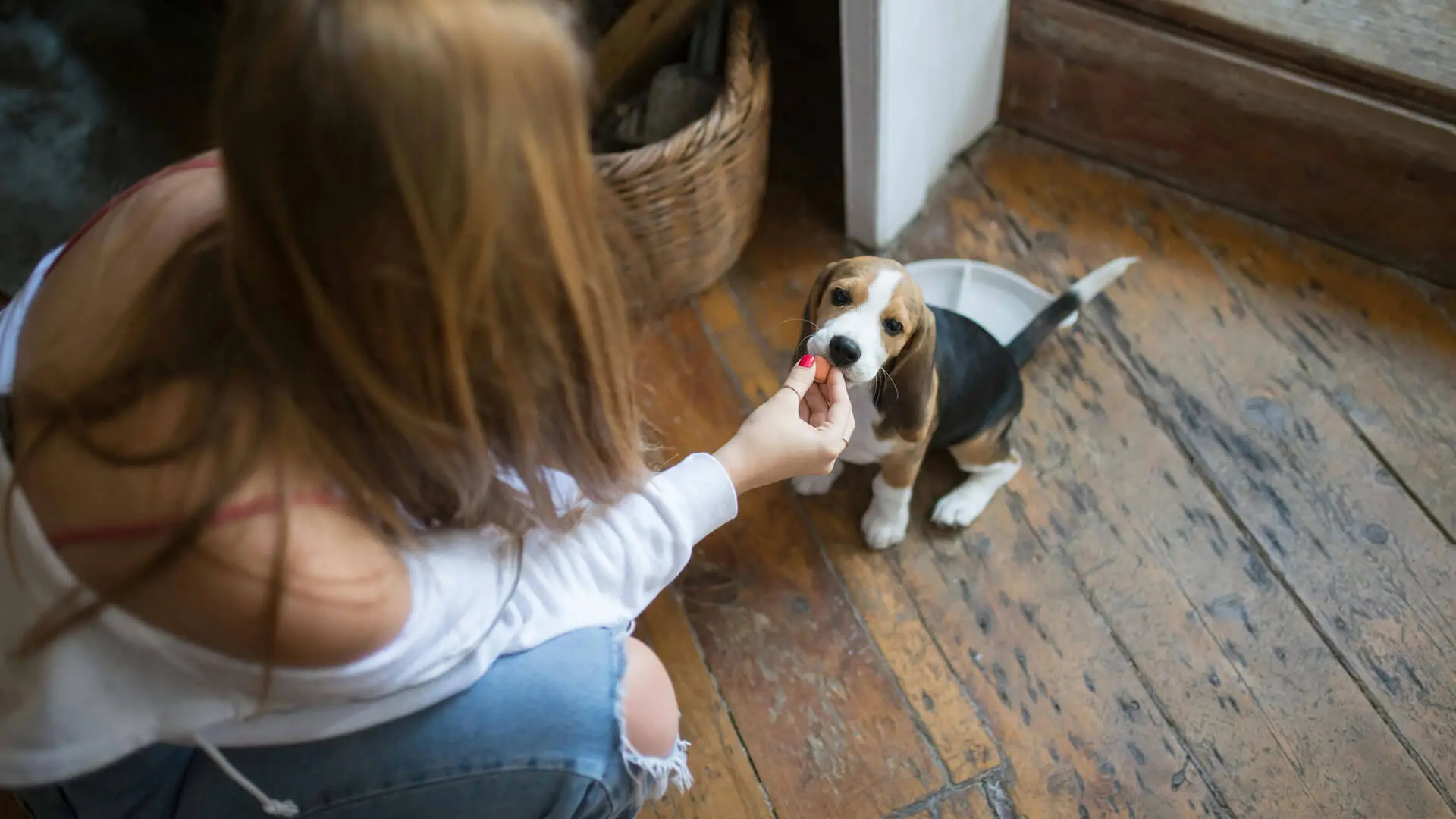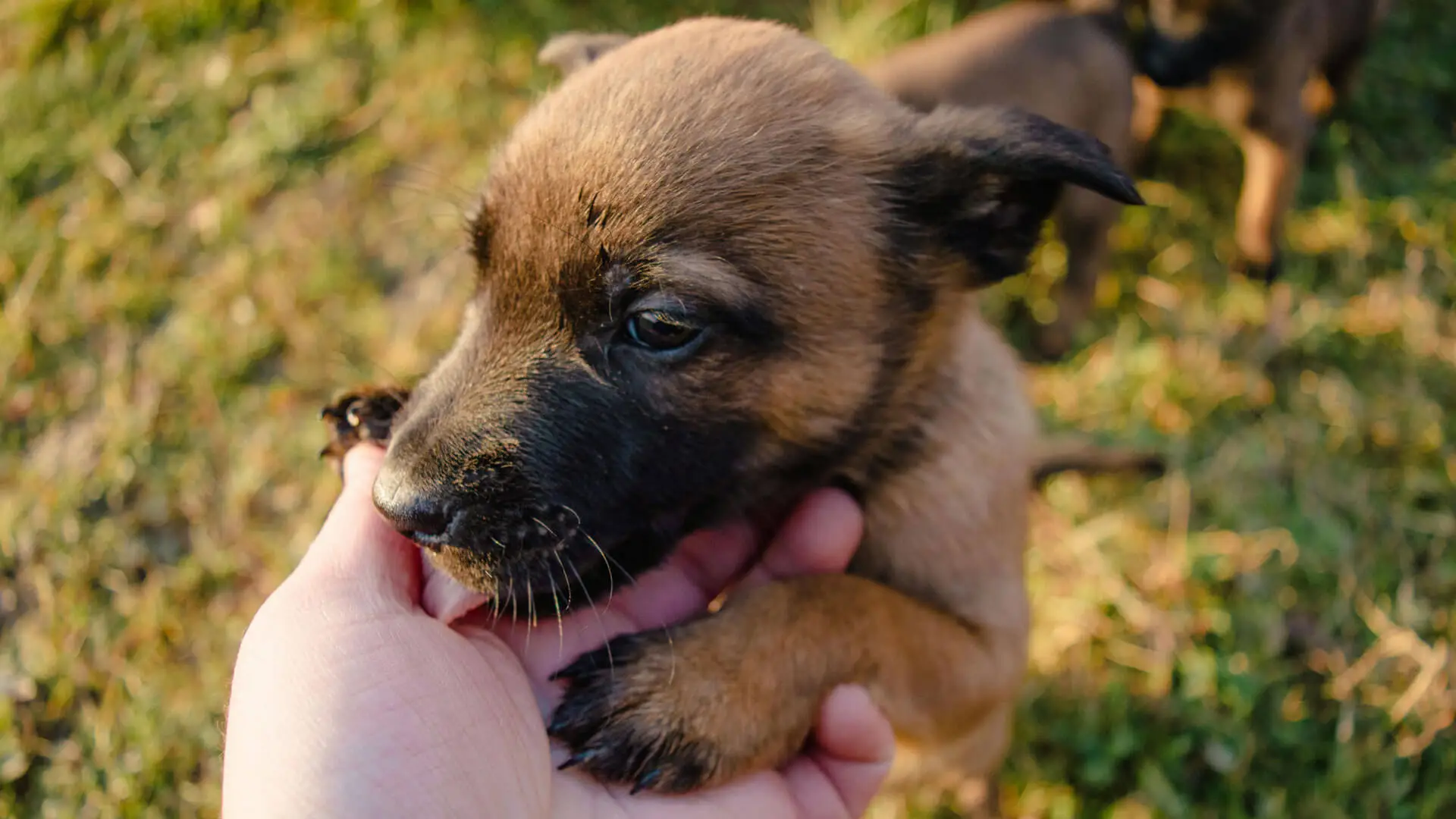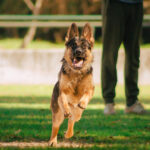The best and most lovable dogs are the ones with good manners. You might be wondering where dogs learn these good manners from. Through training, of course! Yes, training your pup means creating a joyful and happy life for both of you.
But remember, puppies are like babies—they need training at the right age. Starting too early or too late can make learning harder and less effective.
So, when should you start training a puppy? Let’s figure out the right age and how you can give the best training.
What do you Need to do before Training Starts?
Before you start training your furry friend, focus on their emotional health, first. This means making sure they feel safe and comfortable in their new environment. And why you should do that? Because the happier and more secure your puppy feels, the quicker they will learn.
According to expert dog trainers, alpha puppy training has two key parts:
- Building a strong relationship
- Creating structure
With that, your puppy will surely feel loved and secure. This will make them respond better to learn and develop good behavior naturally.
What’s the Best Time to Start Training a Puppy?
Training should begin as soon as you bring your puppy home, usually around 8 weeks old. At this young age, they are curious and ready to learn. Even though they are small, they can learn basic cues to follow like “sit, stand, stay, come, drop it, and heel.
Moreover, the best time for learning and memory development is between 6 to 16 weeks. During this stage, puppies absorb information quickly and form good habits that will last a lifetime. Specifically, from 8 to 16 weeks, you can start socializing them outdoors with other people and dogs.
With early training, your pups will grow into well-behaved and confident dogs. However, that doesn’t mean you should stop training after puppyhood.
In fact, dogs continue to learn throughout their lives, so reinforcing commands and practicing good behavior is important. In short, by starting early and staying consistent, you’ll raise a well-mannered companion—and become a proud and respected pet parent in your neighborhood.
But how can you earn that ‘five-star pet parent’ title? You’ll need to know the best puppy training tips for that. Let’s break them down.

Top Puppy Training Tips Every Owner Needs
These are proven puppy training strategies you should try:
1. Use Positive Reinforcement
The best way to train your fluff balls is through positive reinforcement. This scientifically proven method really works wonders. That means you should reward good behavior on the spot.
For example, when your little champ follows a command or behaves well, give them a treat, a toy, or lots of praise. This gentle puppy training helps them understand what you want them to do and makes learning fun.
Since every puppy is different, so find what motivates yours. Some love treats, others prefer toys, and some enjoy affection. The right reward will keep them excited to learn.
Avoid using punishment, as it can create fear and anxiety. Plus, this can make training harder.
2. Make Training Sessions Brief
Your pups have small bodies so, don’t force them learn more than they bear. For that, you should keep the sessions short and fun. Also, they have short attention spans, which means long training sessions can make them lose interest.
The best approach is to keep each session around 5 minutes. But if your pup is younger, you can exceed it to 15 minutes per day. This way, they stay engaged and enjoy learning without feeling overwhelmed.
It’s also important to end each session on a positive note. When the session goes to its end, reward them with a treat, a toy, or praise for their efforts. This psychological approach will make them ready to be trained every day.
3. Be Consistent with Training
Consistency is one of the most important parts of training. Here, you should be consistent with what you say/use every day. For example, use the same words and hand signals for each command, such as “sit,” “stay,” or “come. It’s just because dogs learn best when they receive clear and repeated instructions.
If different family members use different words, your pet may get confused. Sticking to the same cues helps them understand what is expected.
In simpler terms, training should be the same every day, so your puppy doesn’t develop bad habits. If you’re not consistent, they might not take training seriously.
4. Practice in Different Surroundings
The training sessions must be conducted in different environments. This builds their confidence and improves their learning. No doubt, they can get easily distracted in new places but practicing commands in different settings helps them stay focused.
To achieve that, you should build a puppy training camp at your home where there are fewer distractions. Then slowly introduce them to new environments like the backyard, a friend’s house, or a quiet park.
This helps them learn to listen no matter where they are. However, before you take them to public places, make sure they are fully vaccinated to keep them safe from diseases. Here, it’s important to consult with your vet about when it’s safe to start socializing your tail-wagging friend.
5. Be Patient
5. Just like humans, every dog also learns at a different speed. Some puppies pick up commands quickly, while others take more time. It’s important not to compare your puppy to others. Instead, focus on their progress like how much they’ve been trained.
Patience is key during training. Many pet parents think that crate training a puppy is an overnight process. But its not like that. It takes your patience, time, efforts, and then gets achieved.
Smart Tips for Loving Pet Owners
Taking care of a pet is a big responsibility, but CutePetsTips makes it easier. We provide simple and practical advice on everything from feeding and training to health and behavior. We believe your pup deserves a happy and healthy life, which is why our well-researched guides are here to help.
With our expert pet care tips, you can give your furry friend the best life possible! By subscribing to our blog, you’ll ensure that you always meet your pet’s needs.
FAQs
When should I start training my puppy?
You should start training your puppy as soon as you bring them home, usually around 8 weeks old. Puppies are curious and ready to learn at this age. Basic commands like sit, stand, stay, come, drop it, and heel can be introduced early to help them develop good habits.
But from 8-16 weeks you should start socializing them outside e.g; with other people or dogs.
How long should training sessions be?
Puppies have short attention spans, so keep training sessions around 5 minutes at a time. However, for a younger puppy you can exceed the time to 15 minutes per day. But always end sessions on a positive note with rewards to keep them excited for the next lesson.







